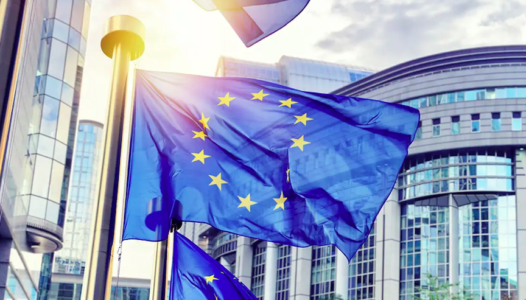The latest Eurobarometer has recently released reveals the highest level of trust in the European Union since 2007 and the highest-ever support for the euro. The survey also shows that Europeans have a more optimistic view about the future. They would like to see a stronger and more independent EU, especially in the face of the current global challenges.
Trust in the EU is at its highest level in 17 years
51% of Europeans tend to trust the EU, the highest result since 2007. Trust in the EU is highest among the young people aged 15-24 (59%). In another 17 year-record, 51% of Europeans said they trust the European Commission.
Almost three quarters of respondents (74%) say they feel citizens of the EU, the highest level in more than two decades. In addition, more than six in ten EU citizens (61%) are also optimistic about the future of the EU.
At the same time, 44% of EU citizens continue to have a positive image of the EU, while 38% have a neutral image and 17% have a negative image of the EU.
Positive trends also registered in most of the enlargement countries surveyed. The majority of citizens tend to trust the EU*, in Albania (81%), Montenegro (75%), Kosovo (70%), Georgia (58%), North Macedonia and Bosnia and Herzegovina (56% each), and Moldova (52%). In Türkiye 42% (four percentage points more compared to the previous survey) tend to trust the EU and in Serbia 38% (+2 percentage points). 38% of United Kingdom respondents (+6 percentage points) also share this view.
Europeans want a stronger, more independent and sustainable EU
Nearly seven in ten respondents (69%) agree that the EU has sufficient power and tools to defend the economic interests of Europe in the global economy. Similarly, 69% agree that the European Union is a place of stability in a troubled world.
According to Europeans, security and defence (33%) should be the main priority area for the EU action in the medium term, followed by migration (29%), the economy (28%), climate and the environment (28%), and health (27%). At the same time, 44% of European citizens think that ensuring peace and stability will have the highest positive impact on their life in the short term, followed by securing food, health, and industry supplies in the EU and managing migration (both 27%). When it comes to specific areas for EU action in the clean sector, Europeans believe the EU should prioritise renewable energy (38%) first, followed by investments in sustainable agriculture (31%), energy infrastructure (28%) and clean technology investments (28%).
Historic high support for the euro and growing optimism about the economy
The Eurobarometer survey registered the highest support ever for the common currency, both in the EU as a whole (74%) and in the euro area (81%). When it comes to the perception of the situation of the European economy, 48% of Europeans (up one point since spring 2024) find it good while 43% (up two points) find it bad. The perception of the situation of the European economy has steadily improved since autumn 2019. A plurality of citizens (49%) think the European economic situation will remain stable in the next 12 months.
Continued support for EU’s response to the war in Ukraine
In the face of the Russian war of aggression against Ukraine, nearly nine Europeans in ten (87%) agree with providing humanitarian support to the people affected by the war. 71% of EU citizens support economic sanctions on the Russian government, companies, and individuals and 68% agree with providing financial support to Ukraine. Six in ten approve of the EU granting candidate status to Ukraine and 58% agree with the EU financing the purchase and supply of military equipment to Ukraine.
The war in Ukraine continues to be considered as the most important issue at EU level (31%) out of 15 items (followed by immigration at 28% and the international situation at 22%), while 76% of European respondents agree that Russia’s invasion of Ukraine is a threat to the security of the EU.
Background
The Standard Eurobarometer 102 (Autumn 2024) was conducted between 10 October and 5 November 2024 across the 27 Member States. Overall, 26,525 EU citizens were interviewed face-to-face. Interviews were also conducted in nine candidate and potential candidate countries (all except Ukraine) and the United Kingdom.






